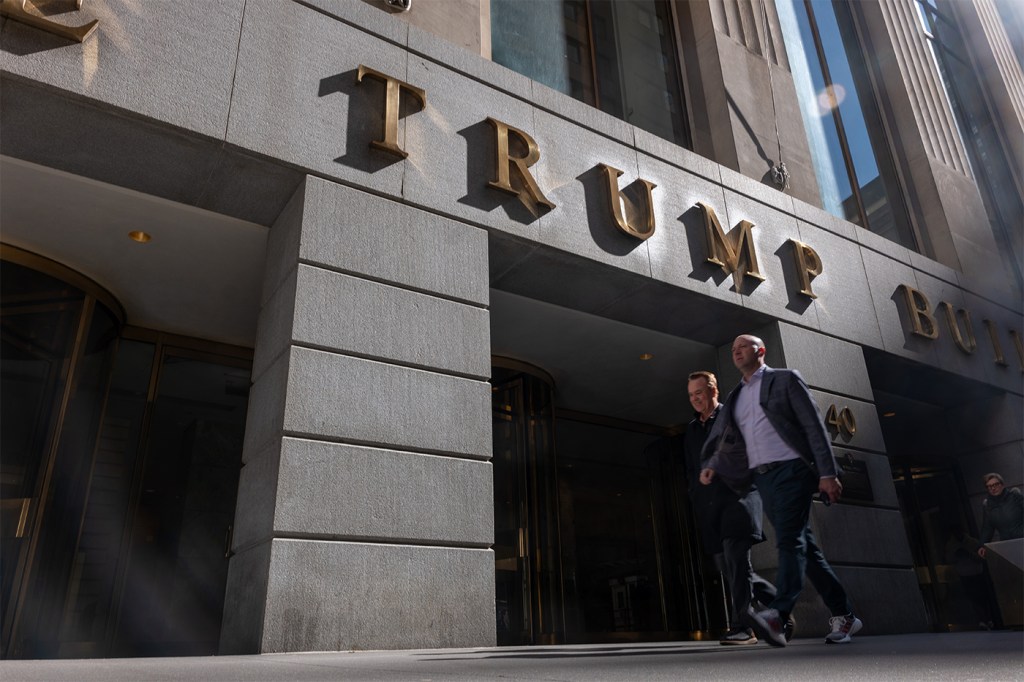Unraveling Trump’s assets — including Trump Tower — will be ‘a long, drawn-out process,’ fraud expert says
“This is going to be a long, drawn-out process before such assets are actually seized and foreclosed,” says Nikos Passas, professor of criminology and criminal justice at Northeastern University.

Donald Trump may be up against President Joe Biden in November, but New York Attorney General Letitia James is proving the more formidable foe in the near-term.
On Monday, James can begin seizing the former president’s assets in an attempt to recover a $450 million judgment rendered in the state’s civil fraud case against him — a penalty Trump has been so far unable to pay. Trump’s attorneys say he has been unable to secure an appeal bond for the half-billion-dollar judgment.
Nikos Passas, professor of criminology and criminal justice at Northeastern University, an expert on white-collar crime, says there are any number of steps the state can take in the event that Trump doesn’t post bond, starting with an extension of the grace period. That, he says, is unlikely.

The odds are, bond will be posted, Passas says. If not, James could start seizing his assets right away, which means she could begin collecting rent from tenants in Trump Tower and his other properties.
James may even be weighing whether to subpoena the former president to get a complete picture of his finances, Passas says.
“The seizure of assets is certainly an option here, but it’s going to be messy and complex, given that you have all kinds of limited company arrangements and overseas assets — plus the fact that some assets are not directly owned by Trump,” Passas says. “This is going to be a long, drawn-out process before such assets are actually seized and foreclosed.”
Featured Posts
There’s been plenty of speculation about the process as it nears reality. Trump’s New York portfolio has understandably been the focus of much of the coverage of the case, which concluded in a finding that Trump and his company inflated the value of their assets. Some observers have highlighted the potential challenges facing James in unraveling Trump’s assets, flagging an outstanding loan of more than $50 million on Trump Tower.
Earlier this week, Trump hinted at the possibility of having to fire sale his properties to come up with the cash — a prospect that, as of Friday, hasn’t materialized. Instead, news that Trump’s social media company, Trump Media & Technology Group — owner of Truth Social — completed a merger with a cash-rich shell company sparked a glimmer of hope.
The deal puts Trump’s personal stake in the company at roughly $3 billion, according to multiple reports. But as stipulated, the former president wouldn’t be able to sell his shares for six months.
“[The deal] might help him down the road, but time is running out here, and the value of his holding there is uncertain,” Passas says.
So all eyes will be on the attorney general.
“She may consider lien on properties, financial asset freezing through bank levies, or simple extend the relief period,” Passas says. “She may want to start collecting right away, or she may ask him to mortgage particular companies … because even though there are cases of billion-dollar bonds, you don’t necessarily have to give one bond and use one company in order to guarantee the payment of the fine that you owe. If you have multiple properties and assets, you use them all in the servicing of that judgment.”
It’s been reported that more than 30 surety companies, insurers that issue court bonds, declined to underwrite the judgment, with Trump’s attorneys noting in a filing that the companies aren’t willing to accept real estate as collateral.
Passas says the bond companies have plenty of reasons to be wary.
“The problem with this is you have a multi-billionaire on paper saying that he cannot find a bond for $455 million,” Passas says.
He continues: “That tells you one of two things: that there may be an unwillingness to pay, which is simply a way of stalling; or that he doesn’t have the assets that he claims, and the properties may be mortgaged or leveraged in such a way as to deter bond companies from providing the guarantee he needs.”
James could have begun collecting immediately following the verdict, but gave Trump a 30-day grace period to get his affairs in order.











